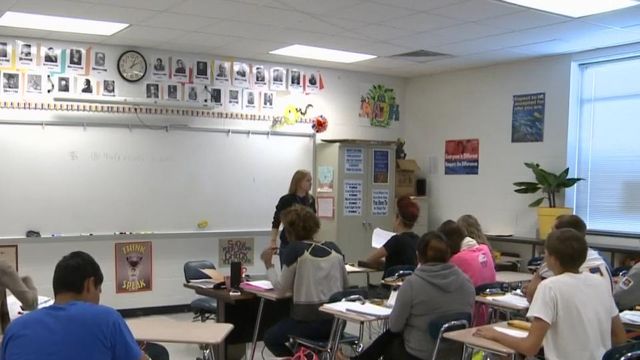Air pollution can hurt students' grades, but electric buses could help
A recent Yale Study of 2.8 million North Carolina students shows air pollution can hurt athletic performance. Electric school buses could help reduce kids' exposure.
Posted — UpdatedPolluted air could be dragging down test scores for kids, according to a recent study of students in North Carolina.
Yale researchers looked at standardized test scores and pollution exposure for every public school student in North Carolina over 17 years – from 2001 to 2018.
"Even when the levels of air pollution and not that bad, we will still see long term effects or damaging children's academic performance, and specifically, we find the damage is greater for racial ethnic minorities and the female students," said Emma Zang, assistant professor of sociology, biostatistics, and global affairs at Yale University and co-author of the study. "One thing we may want to do is to revise our current air pollution standards."
Children and those with heart and lung conditions are more sensitive to polluted air, according to Shawn Taylor with the North Carolina's Division of Air Quality.
"Children have an increased respiratory rate," Taylor said. "They breathe more per minute than adults do, so they're breathing in more pollution when there is high air pollution."
North Carolina’s air quality has improved in recent decades, thanks in part to cleaner technology and emissions reduction standards. But transportation is one of the biggest sources of fine particle pollution, known as PM2.5.
"That 2.5 refers to the size of these really tiny particles, two and a half microns or smaller in diameter. That's many times smaller than the width of a human hair," Taylor said.
Breathing in unhealthy levels of PM2.5 can increase the risk of health problems like heart disease, asthma, and low birth weight. Fine particle pollution comes from many sources including coal plants and vehicle exhaust.
Maureen Joy Charter School in Durham, North Carolina recently replaced 10 diesel buses with battery-powered ones. Samantha Amaral, the senior director of people and finance at the school, says attendance has improved since the electric buses were acquired last fall.
"A healthy child's going to come to school," Amaral said.
Governor Roy Cooper announced that North Carolina will receive $26.7 million in federal funds to purchase 114 electric school buses as part of the Environmental Protection Agency’s (EPA) Clean School Bus Grant Program.
Maureen Joy has received one of those grants and will purchase an additional four buses to add to its fleet of ten.
Related Topics
• Credits
Copyright 2024 by Capitol Broadcasting Company. All rights reserved. This material may not be published, broadcast, rewritten or redistributed.





